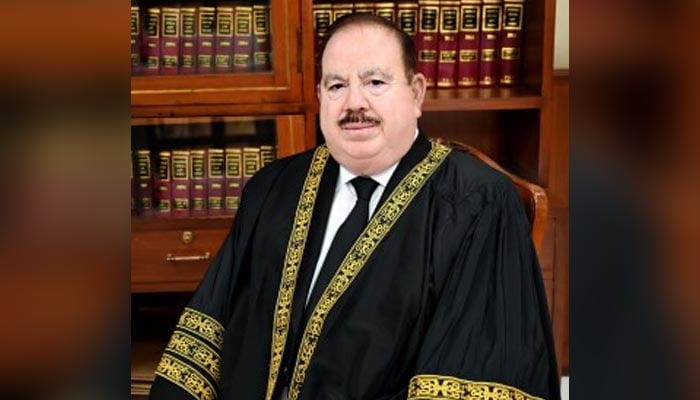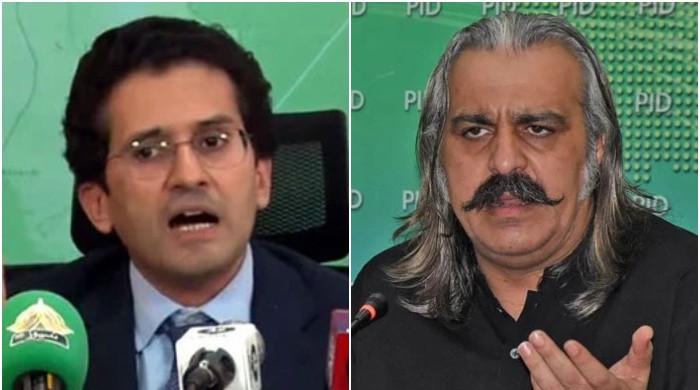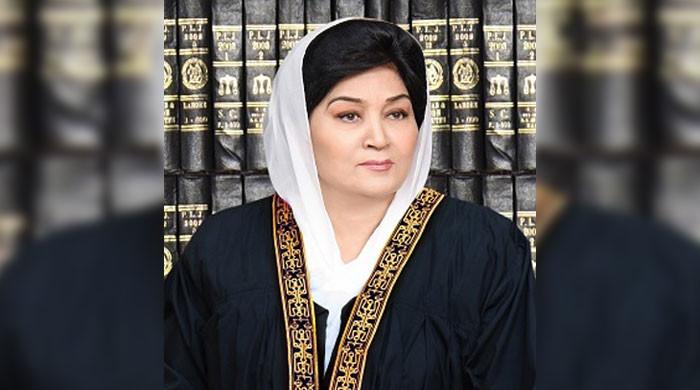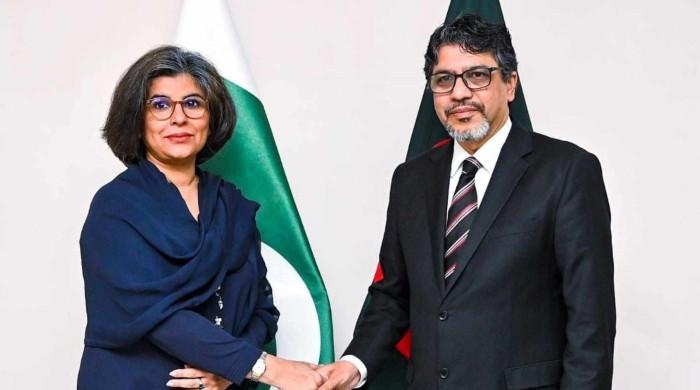Justice Tariq Masood recuses himself from hearing pleas seeking probe into US cypher
Judge says CJP should assign hearing of in-chamber appeal seeking probe into cable to another judge
January 24, 2023

- Registrar's office raises several objections.
- Judge wants another judge to hear plea.
- Pleas filed by Advocates Bhutta, Badar, and Hassan.
ISLAMABAD: Supreme Court Justice Sardar Tariq Masood on Tuesday recused himself from the in-chamber hearing of the petitions seeking a probe into the US cypher — the cable allegedly threatening the ouster of Imran Khan's government.
The apex court conducted the hearing on the appeals filed to probe the matter today. During the hearing, Justice Masood refused to hear the petitions after which they were sent back to Chief Justice Umar Ata Bandial.
The former prime minister, in a public gathering of Pakistan Tehreek-e-Insaf (PTI) workers on March 27, 2022, had pulled out a piece of paper from his pocket and waved it at the crowd, claiming that it was evidence of an "international conspiracy" being hatched to topple his government.
Justice Masood said that the chief justice should assign the hearing of the in-chamber appeal seeking a probe on US cypher to another judge. The registrar's office then returned the petitions, raising several objections.
The petitions were filed by Advocates Zulfiqar Ahmed Bhutta, Syed Tariq Badar and Naeemul Hassan.
Advocate Bhutta had first filed a petition in the Supreme Court under Article 184(3) of the Constitution, naming the federation of Pakistan and the law secretary as respondents.
He had argued that it was an unusual situation that could destabilise the country's law and order by seeding hostility against cordial countries. He had implored the apex court that the respondents may be directed to deliver the "letter" to the civil and military officers to examine.
However, the registrar's office returned the plea objecting that the petitioner had not pointed out what questions of public importance were involved in the case concerning any fundamental rights to invoke the jurisdiction of the Supreme Court under Article 184(3) of the Constitution.
The registrar's office added that the plea did not meet the conditions required to invoke the court's extraordinary jurisdiction under Article 184(3) of the Constitution.
The office added that the applicant drew the notice properly, neither mentioning the purpose of the petition nor providing a copy of the petition to the respondent. It stated that the applicant did not draw the petition as per the Supreme Court Rules, 1980.
However, the applicant filed a chamber appeal against the registrar's objections in the apex court and pleaded for his appeal to be accepted and place the matter before the bench of the apex court.
He had stated that his petition was fully apt under Article 184(3) of the constitution and that the registrar's objections to its fixation before the bench were unlawful.











